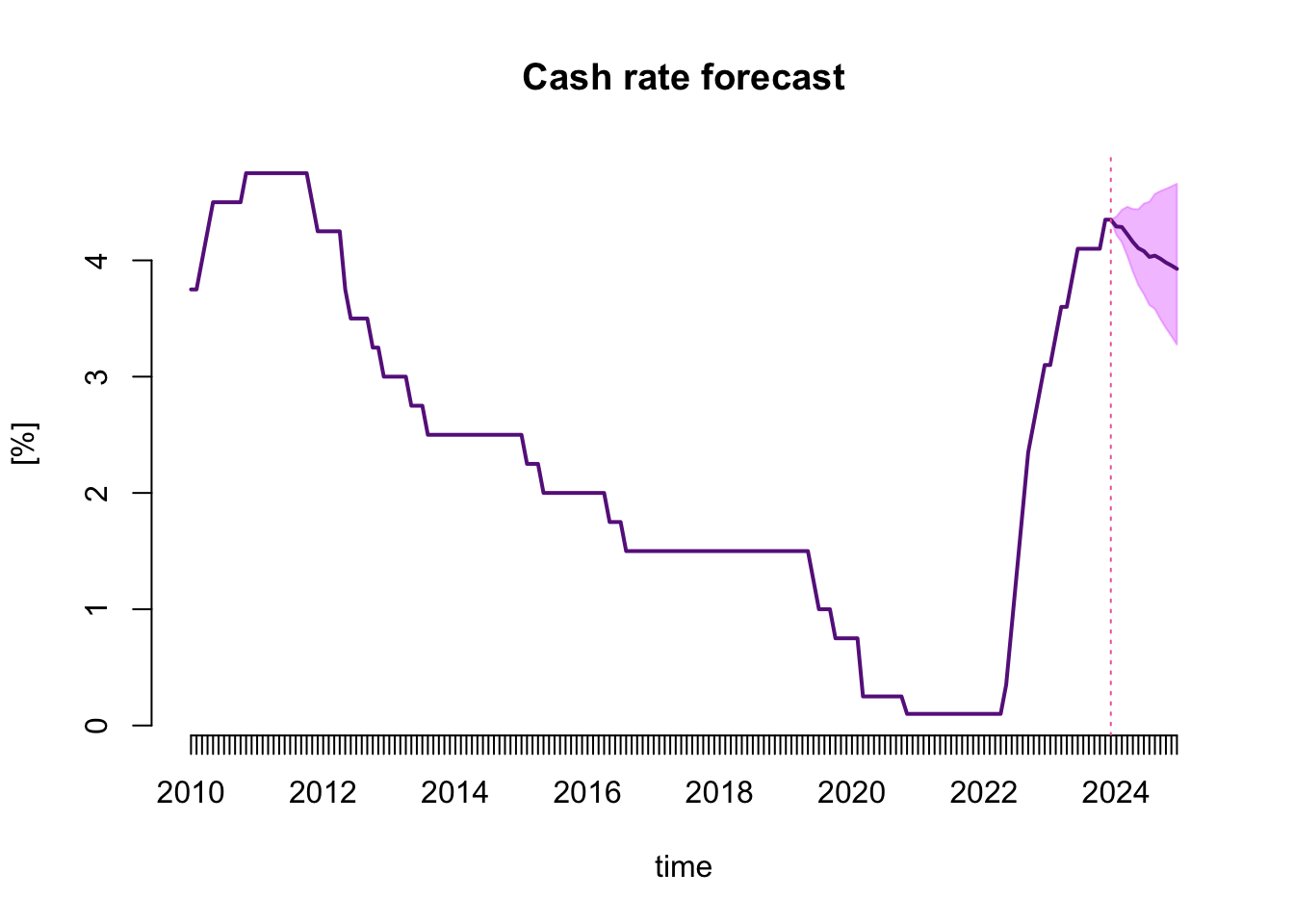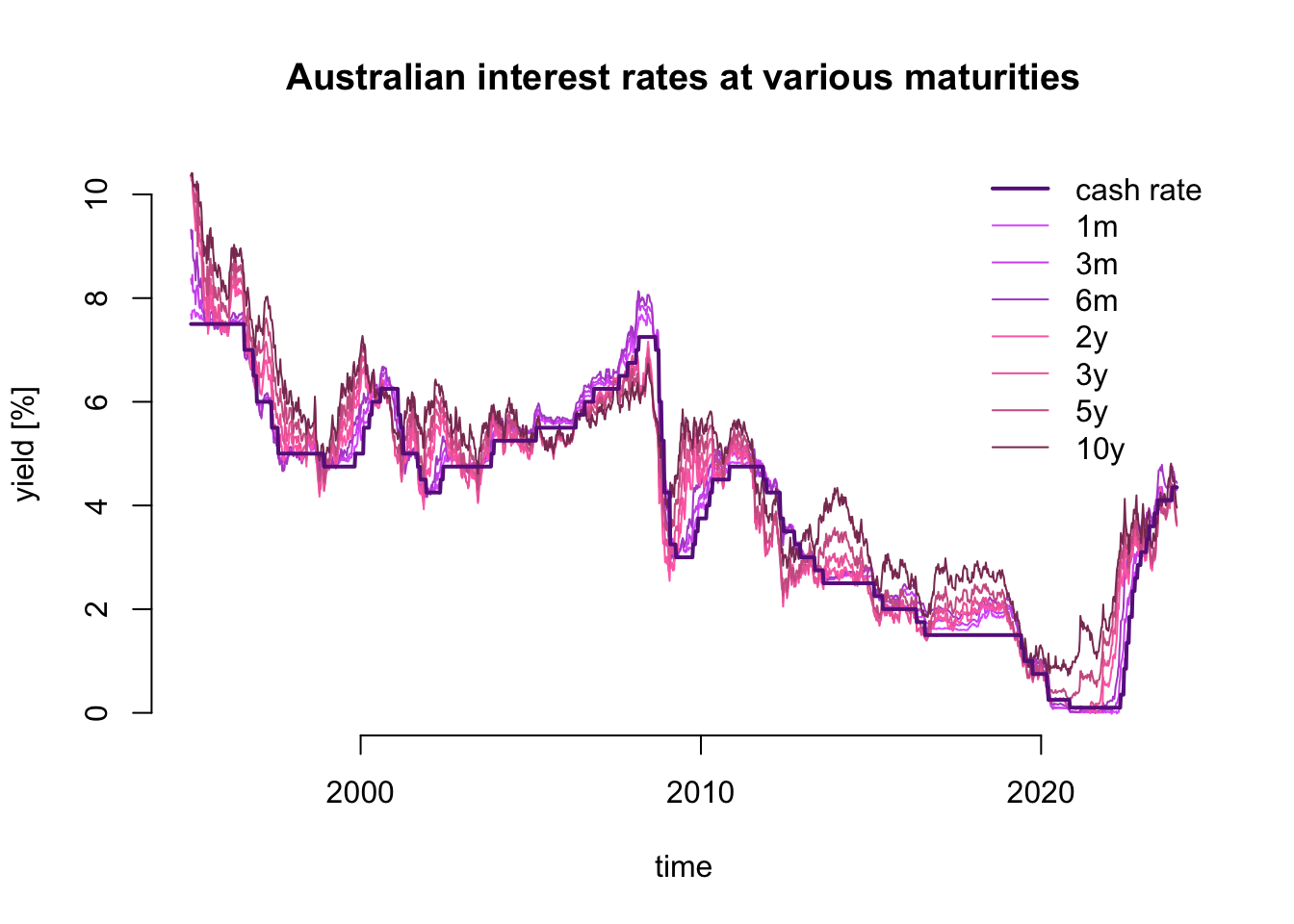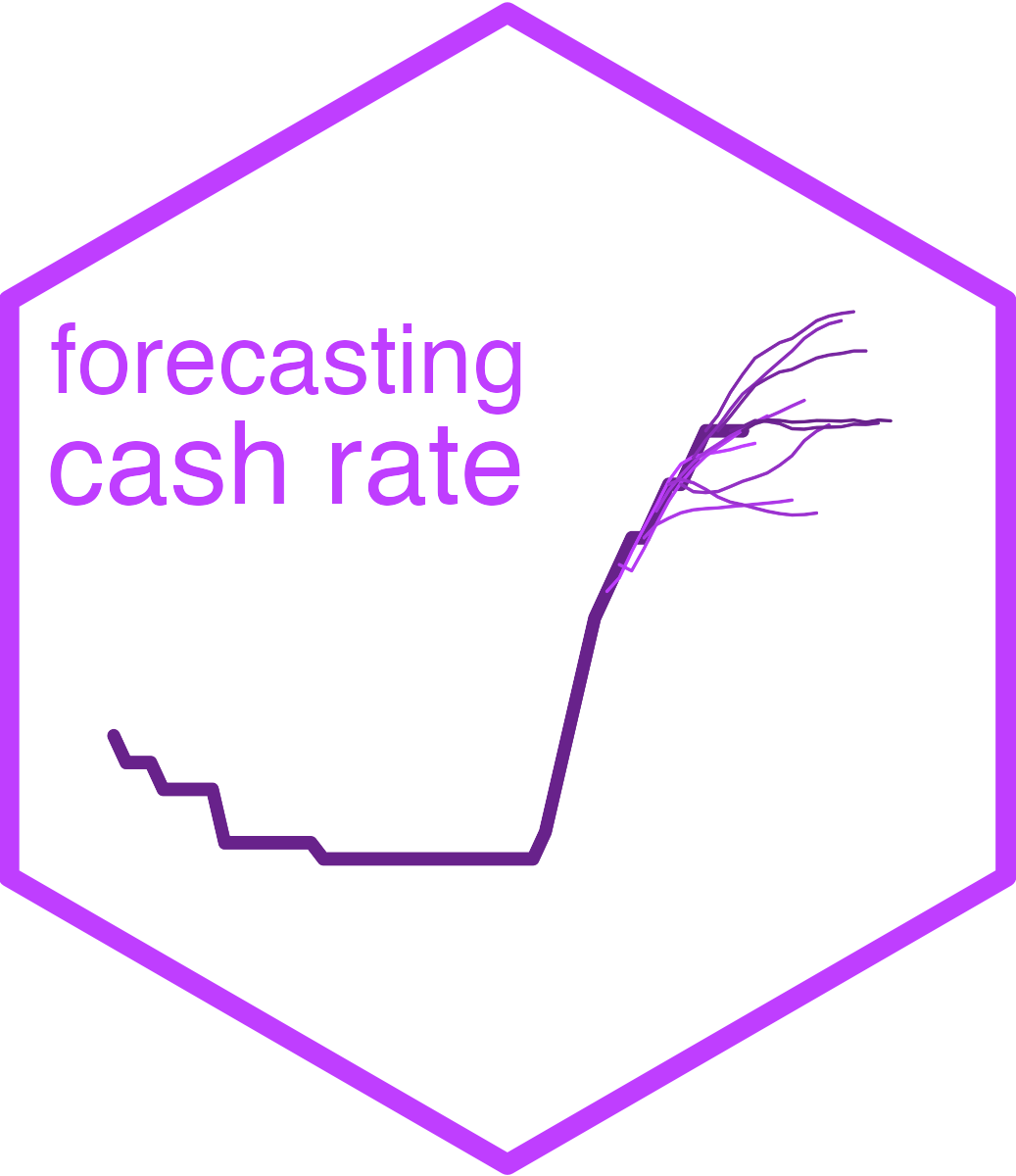
December 2023
Have a look at my end-of-year forecasts prepared to answer the RBA cash rate survey by finder.com.au.
Cash rate forecasts
The figure below presents the monthly cash rate series starting from January 2010, with the forecasts reported from January 2024 to December 2024 as the forecast mean and the 68% forecasting intervals.
The table below makes the numerical values presented in the figure more accessible.
| monthly | lower | upper | |
|---|---|---|---|
| Jan 2024 | 4.29 | 4.22 | 4.38 |
| Feb 2024 | 4.29 | 4.16 | 4.43 |
| Mar 2024 | 4.22 | 4.04 | 4.46 |
| Apr 2024 | 4.16 | 3.90 | 4.44 |
| May 2024 | 4.10 | 3.79 | 4.44 |
| Jun 2024 | 4.08 | 3.71 | 4.49 |
| Jul 2024 | 4.03 | 3.62 | 4.50 |
| Aug 2024 | 4.04 | 3.58 | 4.57 |
| Sep 2024 | 4.01 | 3.50 | 4.60 |
| Oct 2024 | 3.98 | 3.42 | 4.61 |
| Nov 2024 | 3.96 | 3.35 | 4.64 |
| Dec 2024 | 3.93 | 3.28 | 4.66 |
Survey answers
Based on the forecasts above, and the analysis of forecasts from individual models, I formed the following survey answers:
When you think the RBA will change the cash rate?
| Jan 2023 | Feb 2024 | Mar 2024 | Apr 2024 | May 2024 | Jun 2024 | Jul 2024 | Aug 2024 | Sep 2024 or later | |
|---|---|---|---|---|---|---|---|---|---|
| Increase | |||||||||
| Hold | ✓ | ✓ | |||||||
| Decrease |
Why do you think this?
Happy New Year! My forecasts hardly contain the current cash rate value within the forecast interval, with most of the forecast density mass indicating downward movements. My reading of these results is that the RBA will HOLD the cash rate at the current value to push the inflation down more. I expect the first interest rate cuts by mid-2024. My forecasts are available at https://forecasting-cash-rate.github.io/
Do you think the cash rate has peaked?
YES
When do you think the RBA will first cut the cash rate?
June 2024
Forecasting system
My forecasting system for November is based on the cash rate target and government bond yields at various maturities as presented in the figure below.

The system consists of over two hundred of models. Half of them are are models of weekly and the other half of monthly data.
Vector Error Correction models for weekly and monthly series with different model specification parameters. Univariate models for the cash rate capture complex patterns of data persistence using autoregressive moving average equation extended by time-varying volatility equation - a GARCH model. Part of the models include the leverage effect and/or time-varying risk premium.
The forecasts are pooled in two stages. Firstly, the models are weighted in four sub-groups VECM vs. ARMA and weekly vs. monthly data models proportionally to their cash rate forecasting ability. Such four pooled forecasts are equally weighted in the second stage to provide monthly forecasts reported above.
